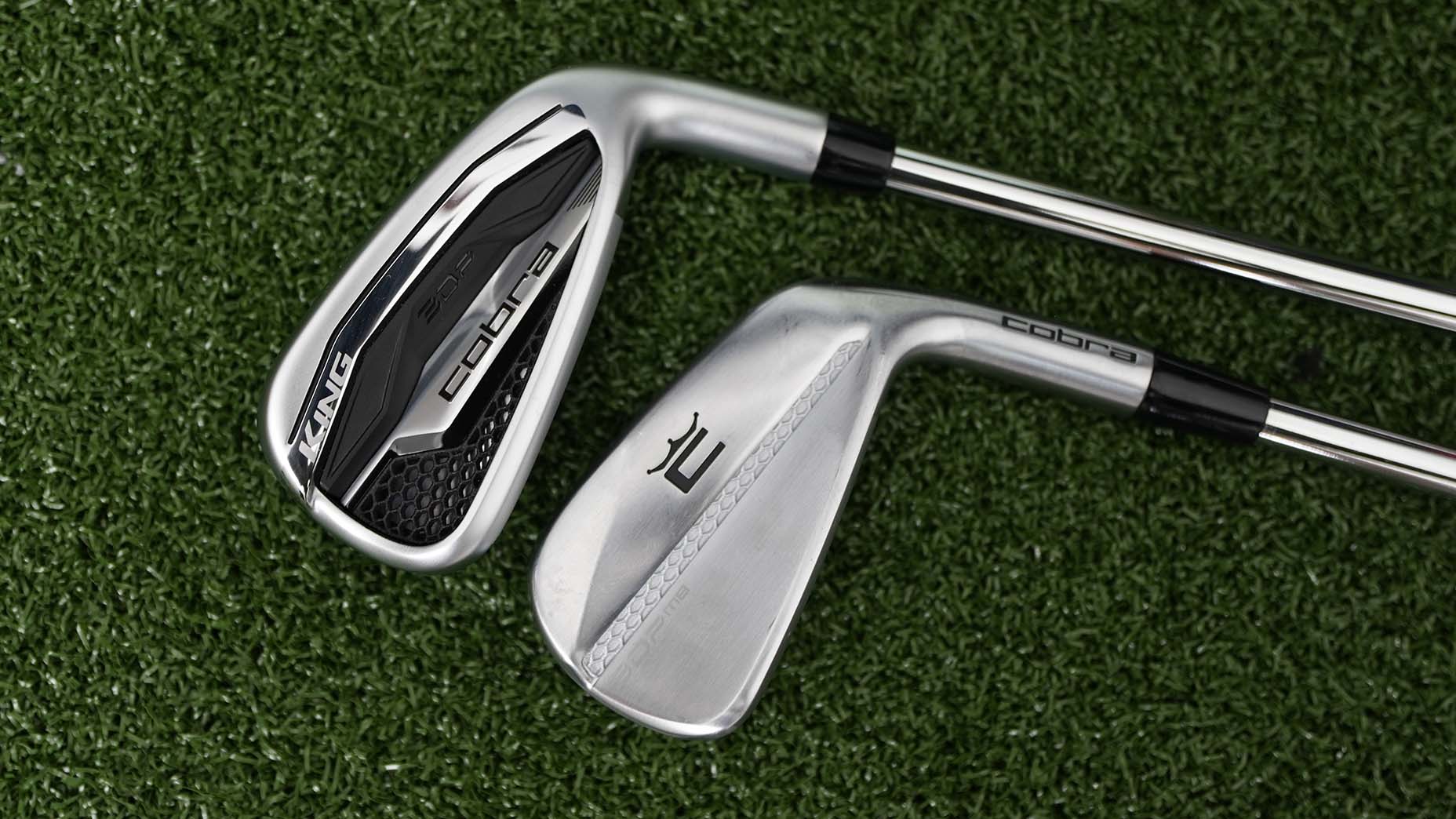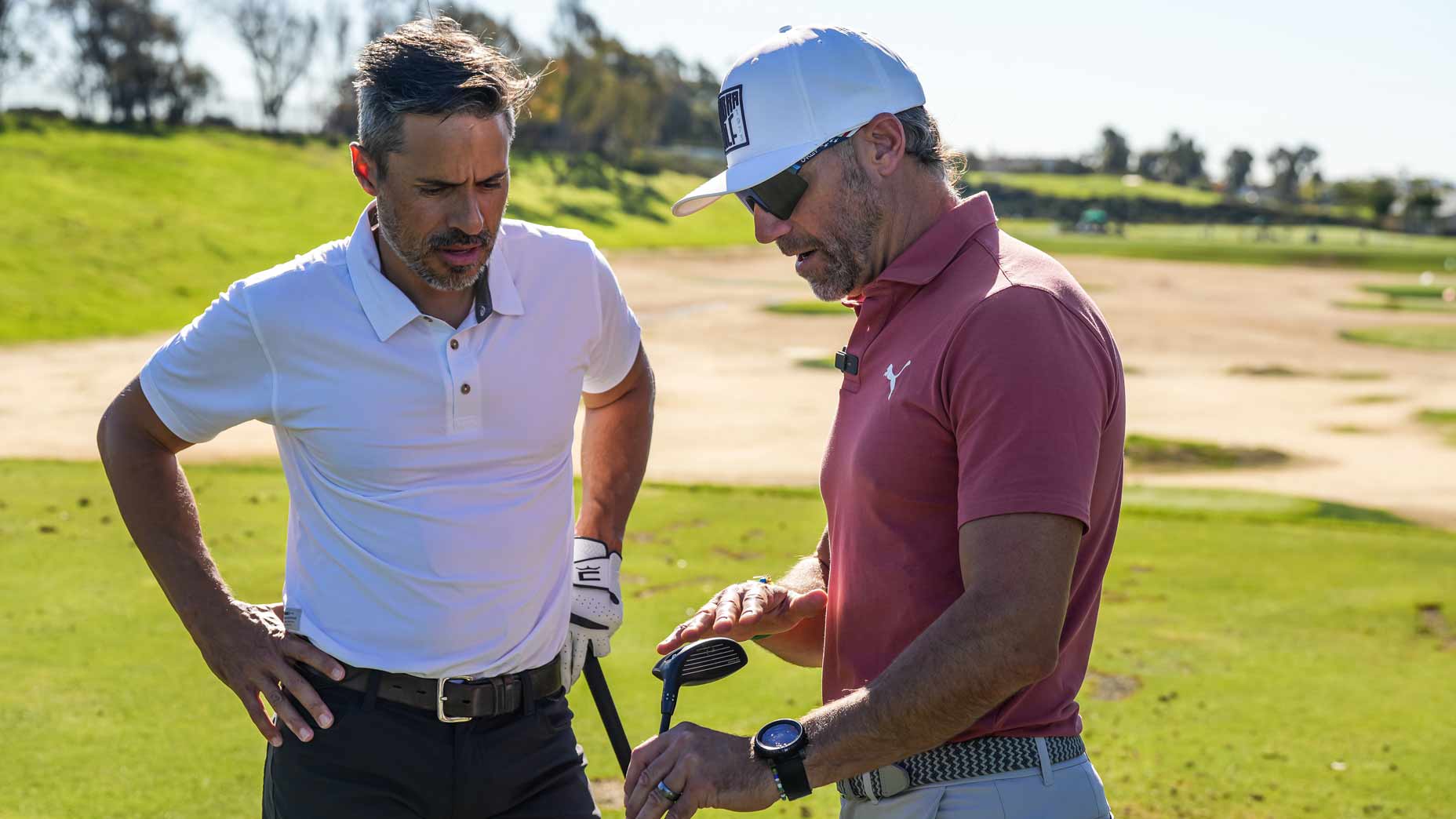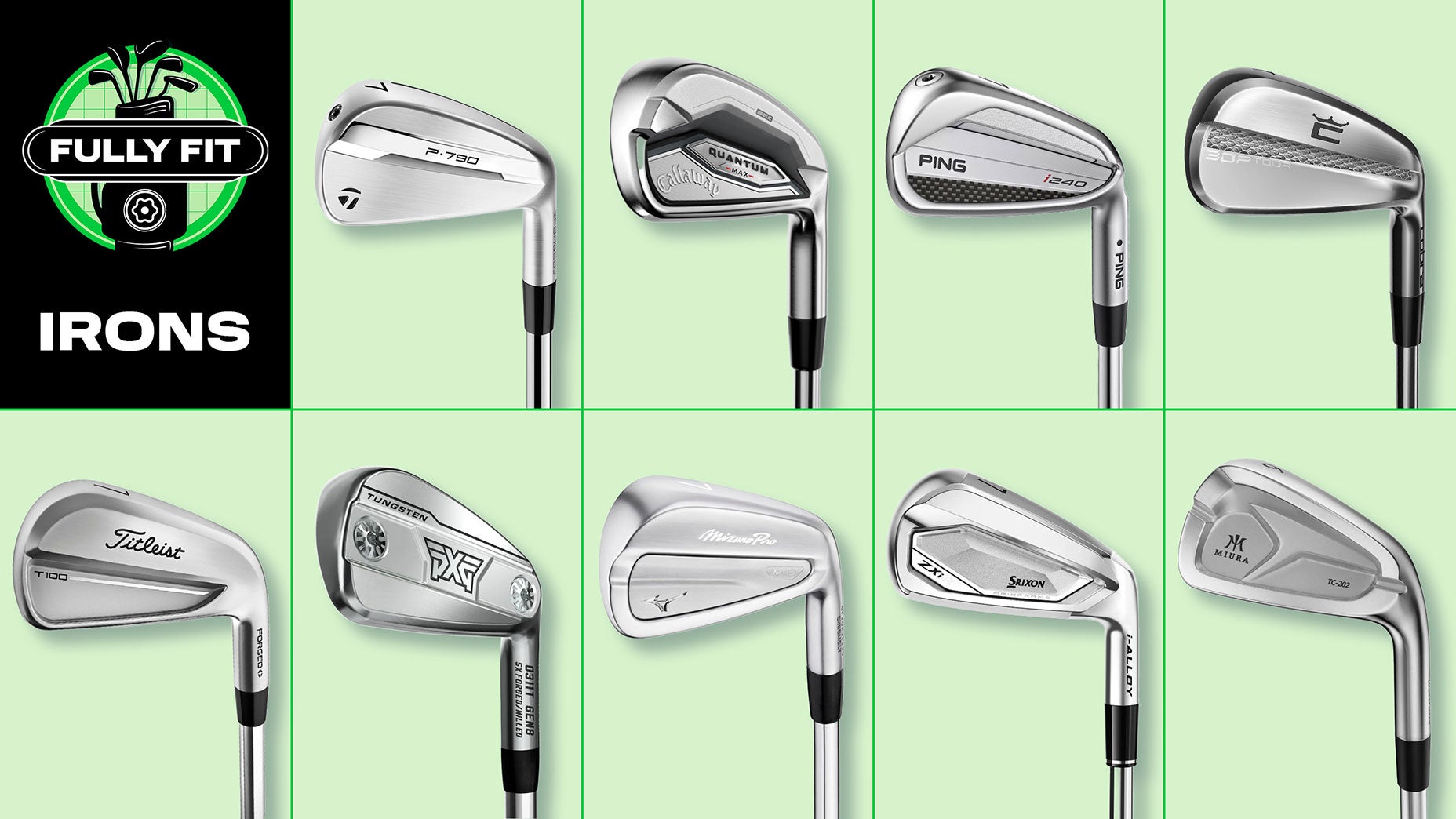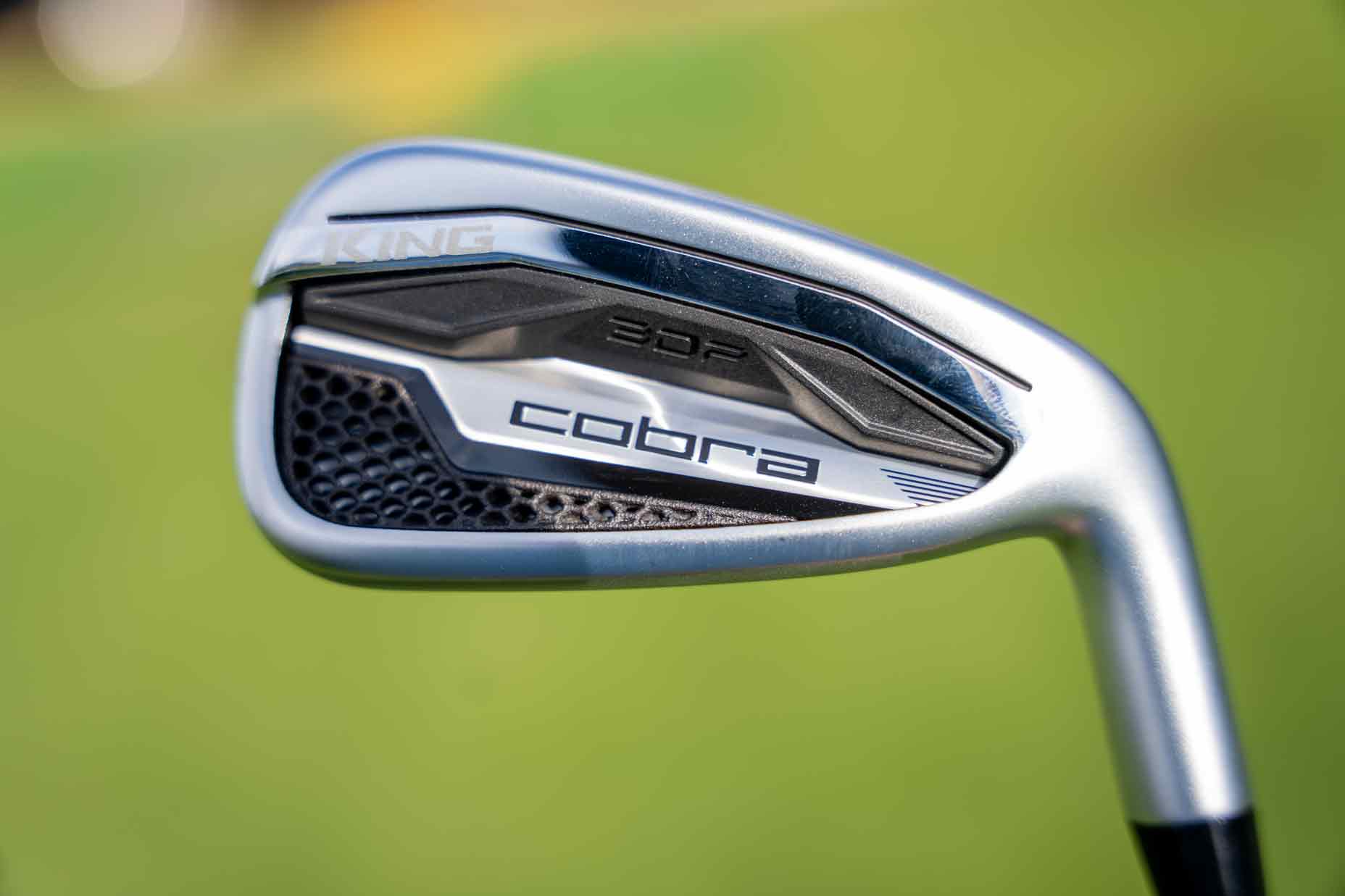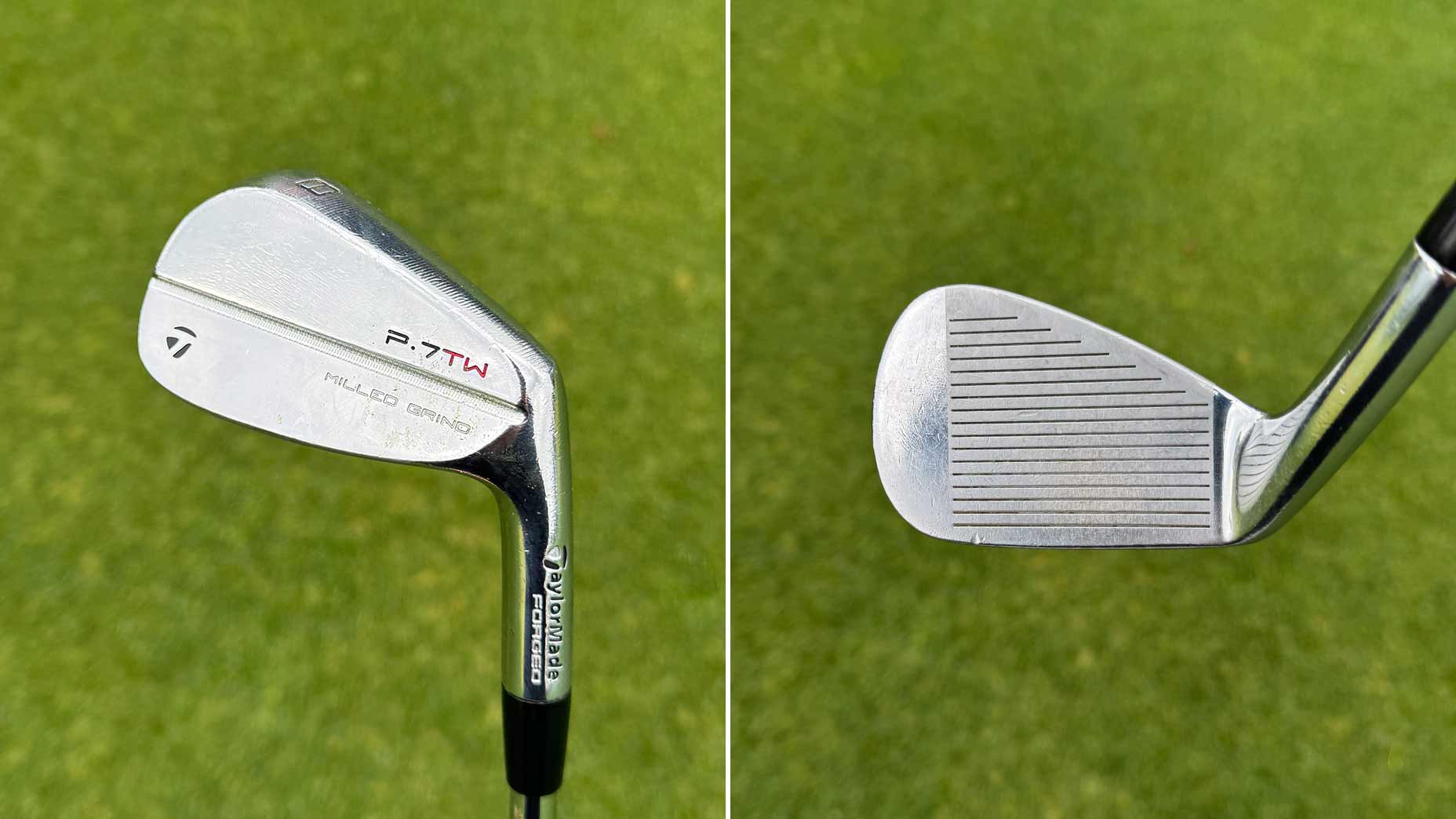Cobra’s King Tour ($1299/7-piece set), King Tour CB ($1199/7-piece set) and King Tour MB ($1199/7-piece set) irons will be available at retail on Feb. 3.
MORE FROM OUR 2023 CLUBTEST COVERAGE: A first look at Cobra’s Aerojet driver and fairway woods | What’s new with Cobra’s Aerojet hybrids and irons | A 6-handicap tested Cobra’s new Aerojet and King clubs. Here’s what he learned. | 4 areas where Cobra’s Aerojet driver excels, according to our robot | WATCH: Can Cobra’s Aerojet drivers follow up on their recent RoboTest success?
***
It’s not often we see a top equipment manufacturer eschew the “pour every bit of technology we have into it” trend and opt for the lesser-seen “make something classic” strategy. But that’s exactly what Cobra did with its all-new King Tour and King Tour CB/MB irons.
Before we delineate the details between each model, let’s first recognize the star feature found in all three: a five-step forging process. The method beings with heating carbon steel billets to 1,200 degrees, which are then rough forged three times (this is steps 1 through 3) to form the base shape of the iron. Step 4 involves 1,200 tons (not a typo) of pressure at 800 degrees to refine the shapes and apply details and shapeliness. In step 5, each iron is subjected to 2,000 tons of pressure — which if you need a visual, that’s the weight of 80 full-sized firetrucks — at 700 degrees to form the steel into a more uniform and isotropic internal grain structure.
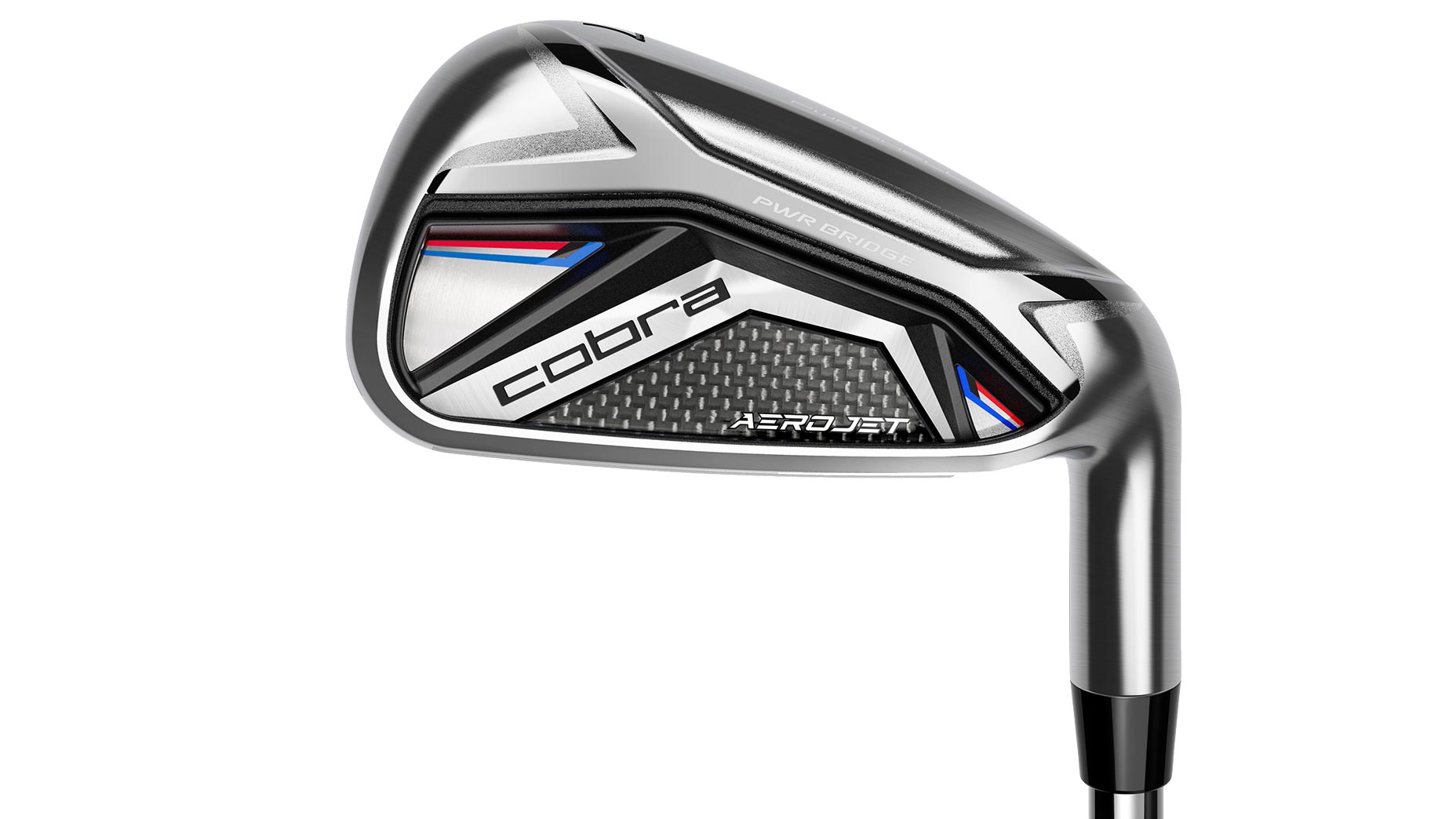
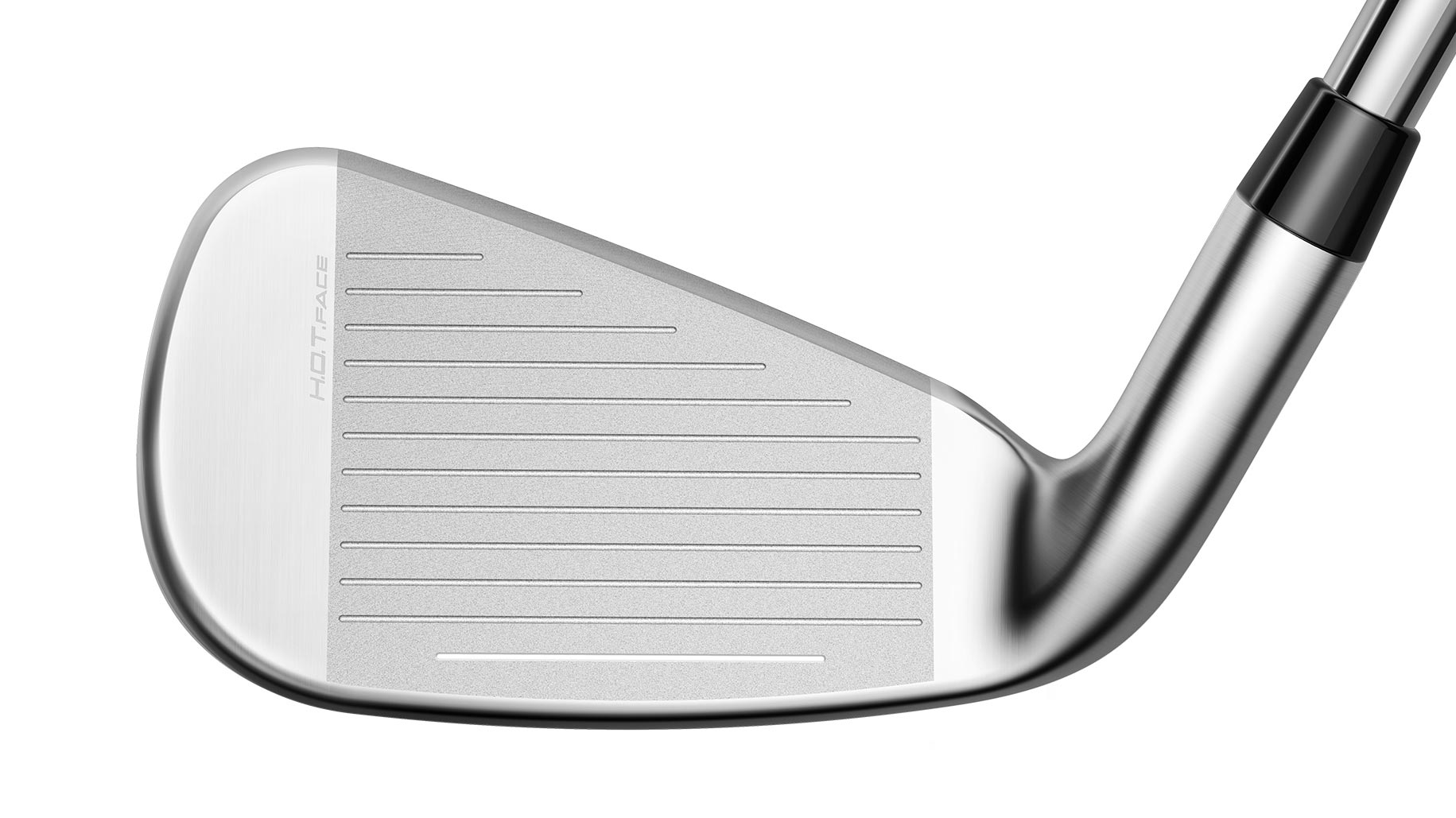
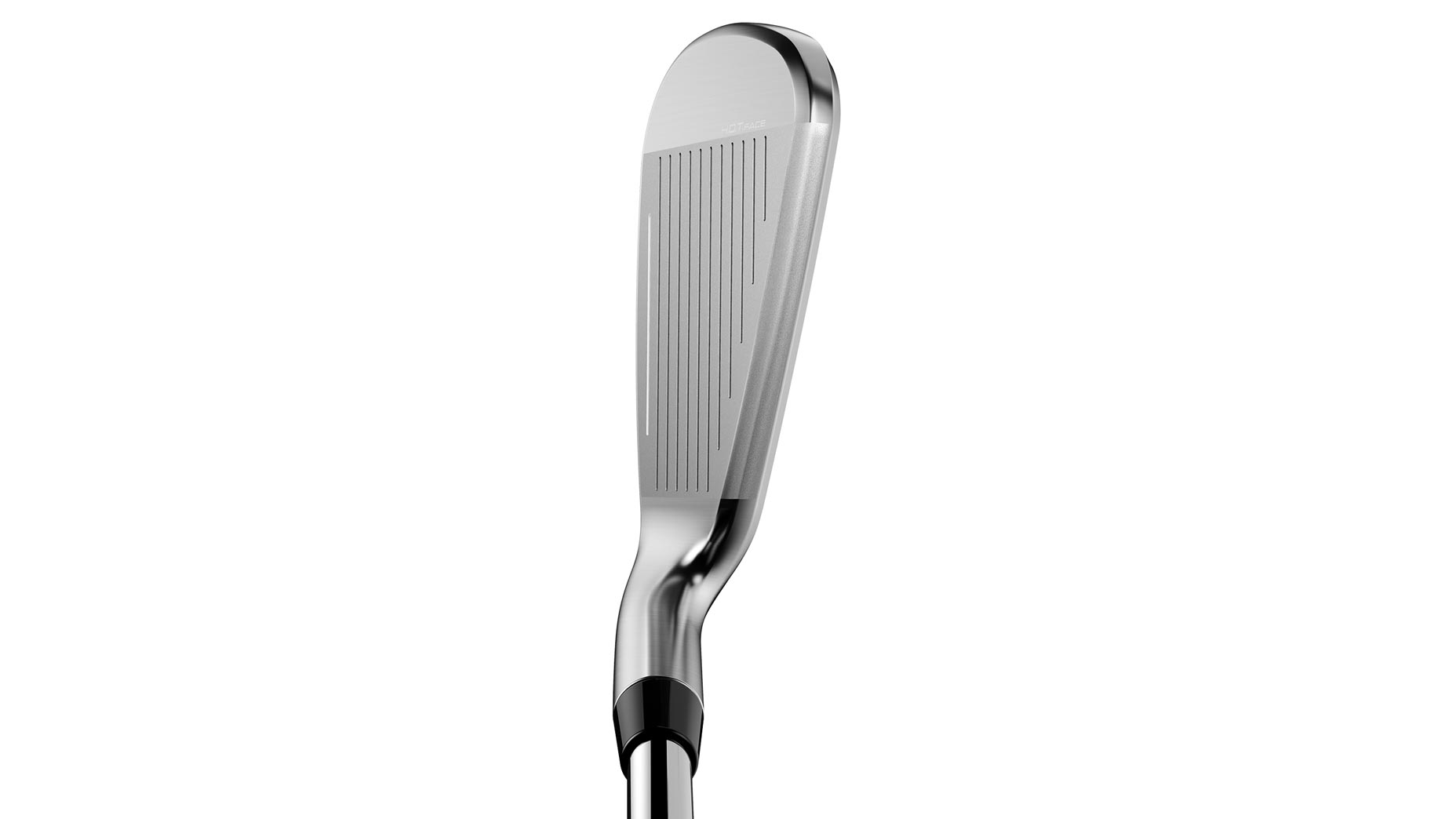
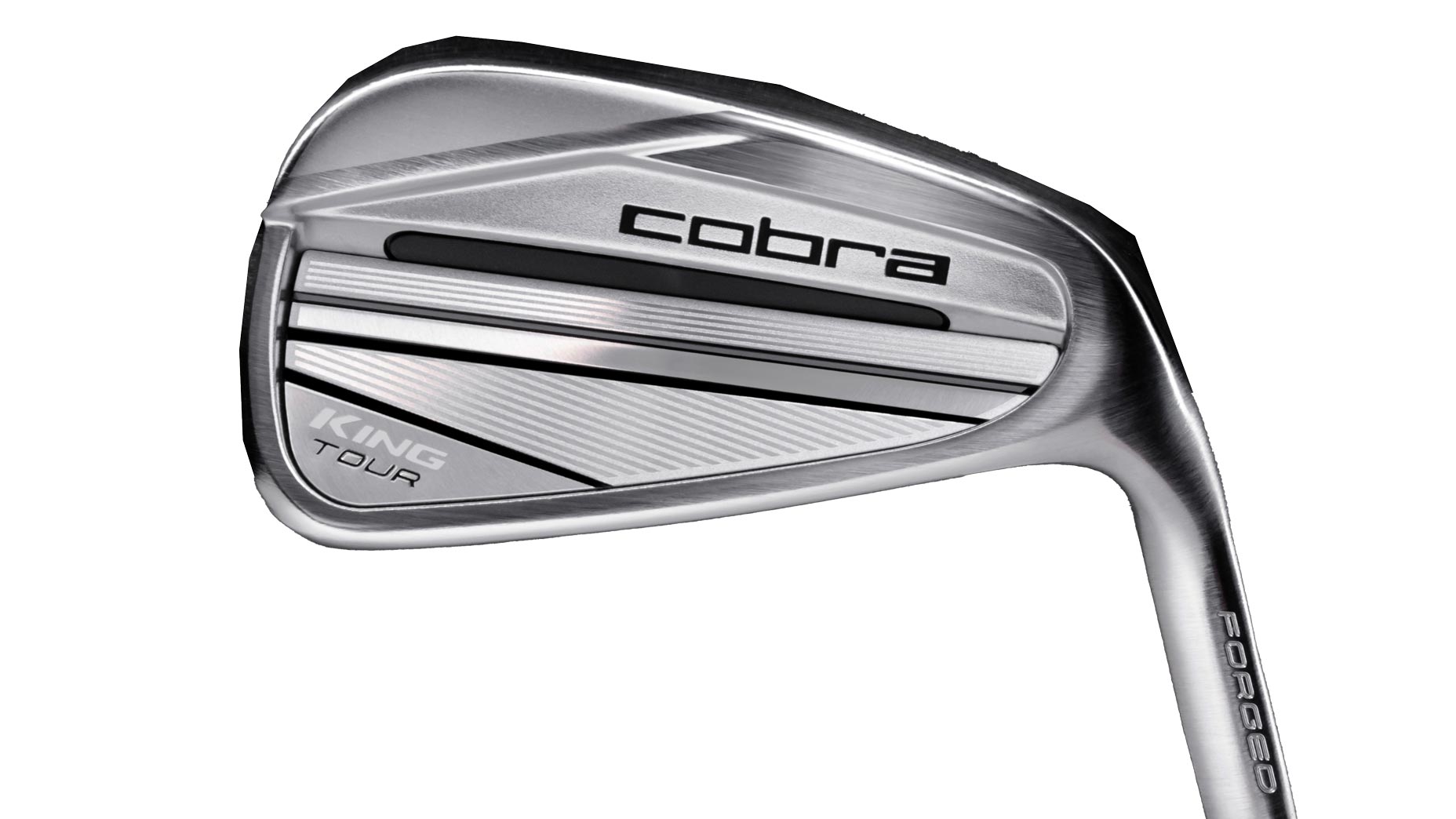
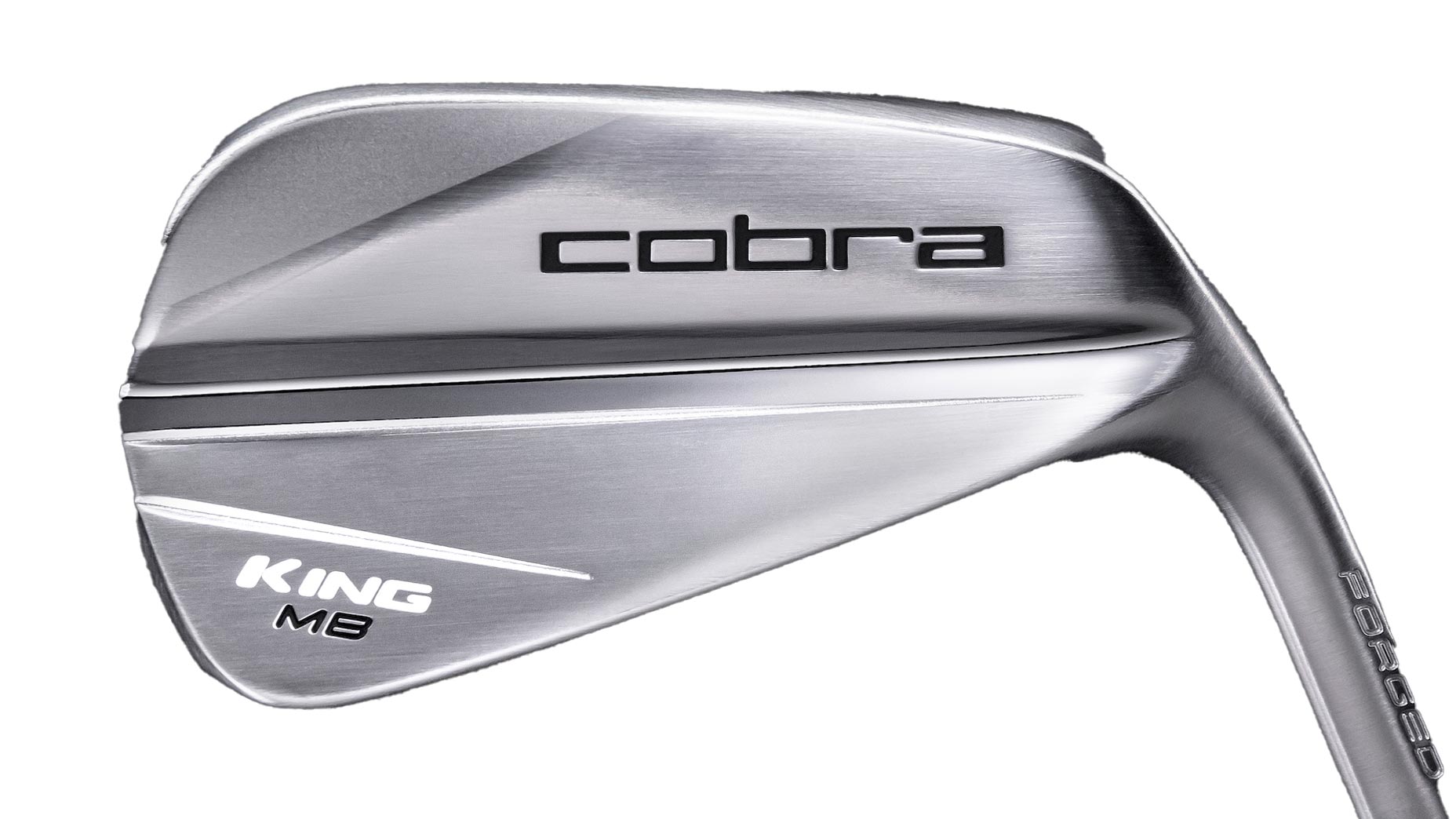
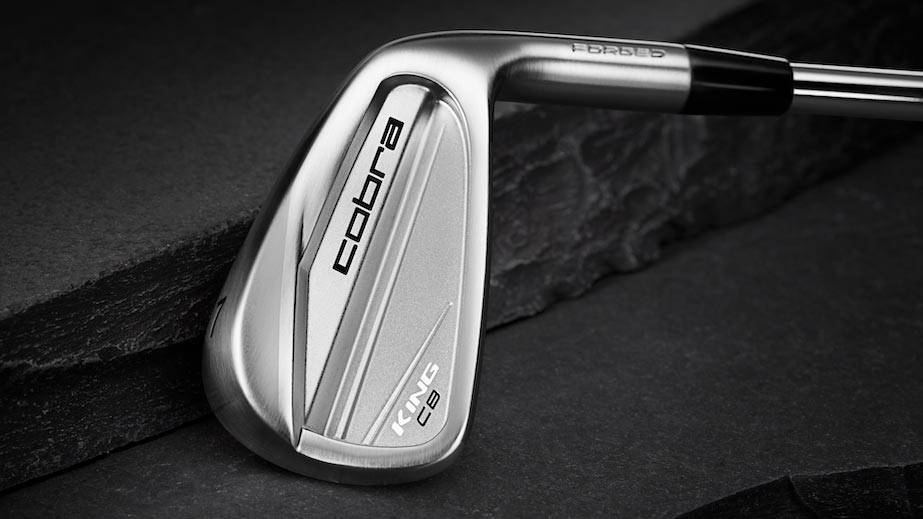
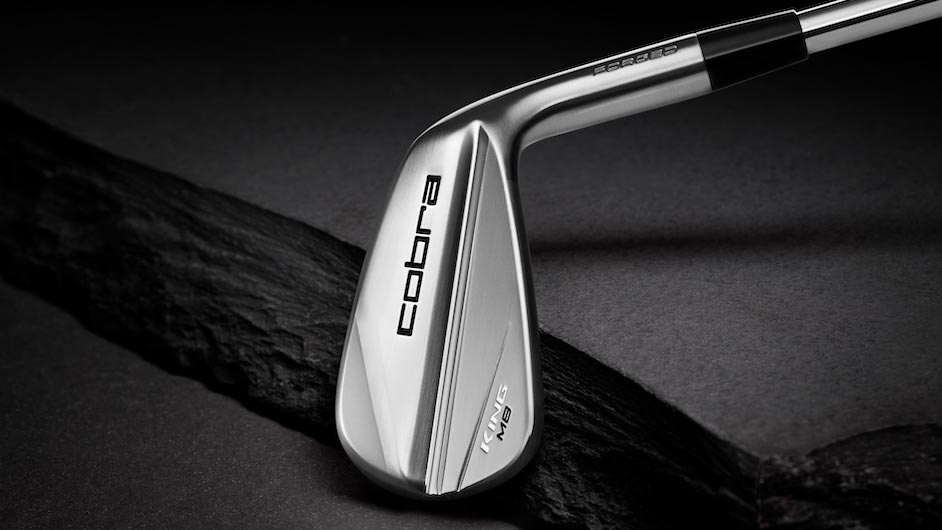
Cobra Aerojet, King Tour, King Tour CB and King Tour MB Irons
The net result is precision shaping and flatter clubfaces, tighter weight tolerances, better face thickness consistency and improved feel across the face. After the forgings and polishing, a CNC machine finishes and cuts precision-milled grooves into every face.
“The five-step forging process is critical to both the feel produced at impact by each of our new King irons as well the consistency of performance,” said Tom Olsavsky, VP of R&D for Cobra Golf. “Players who desire the feel of forged want a soft sensation at impact rather than one that’s overly crisp, and our process delivers the desired sensation. But forgings can also be lacking in consistency due to the challenges involved in the forging process, all of which we’ve improved on by creating forged irons with superior precision from clubhead to clubhead. Players who favor forged irons now have the option to enjoy all the benefits of a forging with the consistency normally associated with cast products.”

King Tour
The streamlined, low-profile, matte-finished King Tour is made for players who want the benefits that come from the aforementioned forging process with the feel-good benefit of an aluminum medallion and a TPU insert. Each iron has a CNC-milled undercut cavity within the back cavity, which repositions weight from high-center to low-center as well as more towards the heel and toe. The undercut cavities are deeper in long irons for more forgiveness and become progressively shallower in the shorter clubs for better shotmaking maneuverability.
To enhance feel, the cavity on each iron is filled with soft TPU material and is then topped with an aluminum medallion. Combined, the TPU and medallion work together to produce a softer feel and pleasing sound at impact.
When compared to Cobra’s King Forged TEC iron, the King Tour iron has a thinner topline and less offset. Compared to the King Tour MIM iron, the new KING Tour has a more compact blade length. Lastly, these irons are strong lofted by two degrees when compared to the new irons below, making the King Tour longer than most forged irons on the market. Available in 3-GW, the stock set is offered in 4-PW. A KBS $-Taper 120 steel shaft in stiff flex comes standard in every iron.


KING Tour CB/MB
The sleekest and most compact irons in the KING iron family, the KING Tour CB (cavity-back) and KING Tour MB (muscle-back) irons have thin toplines, reduced offset, thin soles and shorter blade lengths for maximum shot-shaping. There’s nothing added to these to enhance how they look, feel or work — the quintuple forging process is why each CB/MB has a precisely located CG for maximum efficiency and energy transfer at impact.
And, they feel exactly how better players want an iron to feel. They’re silky soft on solid hits, but responsive enough to provide the “you missed that one” feel when you strike the ball away from the center of percussion.
The CB irons have a cavity-back shape with some slight offset (emphasis on “slight”) for more forgiveness, whereas the muscle-back MB irons are traditional, non-offset blades through and through. The stock set is a mixed one with CBs in the 4-iron through 6-iron and MBs in the 7-iron through pitching wedge. Full sets of CB or MB irons are available (3-GW), both with KBS $-Taper shafts as the standard option.
Want to overhaul your bag for 2023? Find a fitting location near you at GOLF’s affiliate company True Spec Golf.

